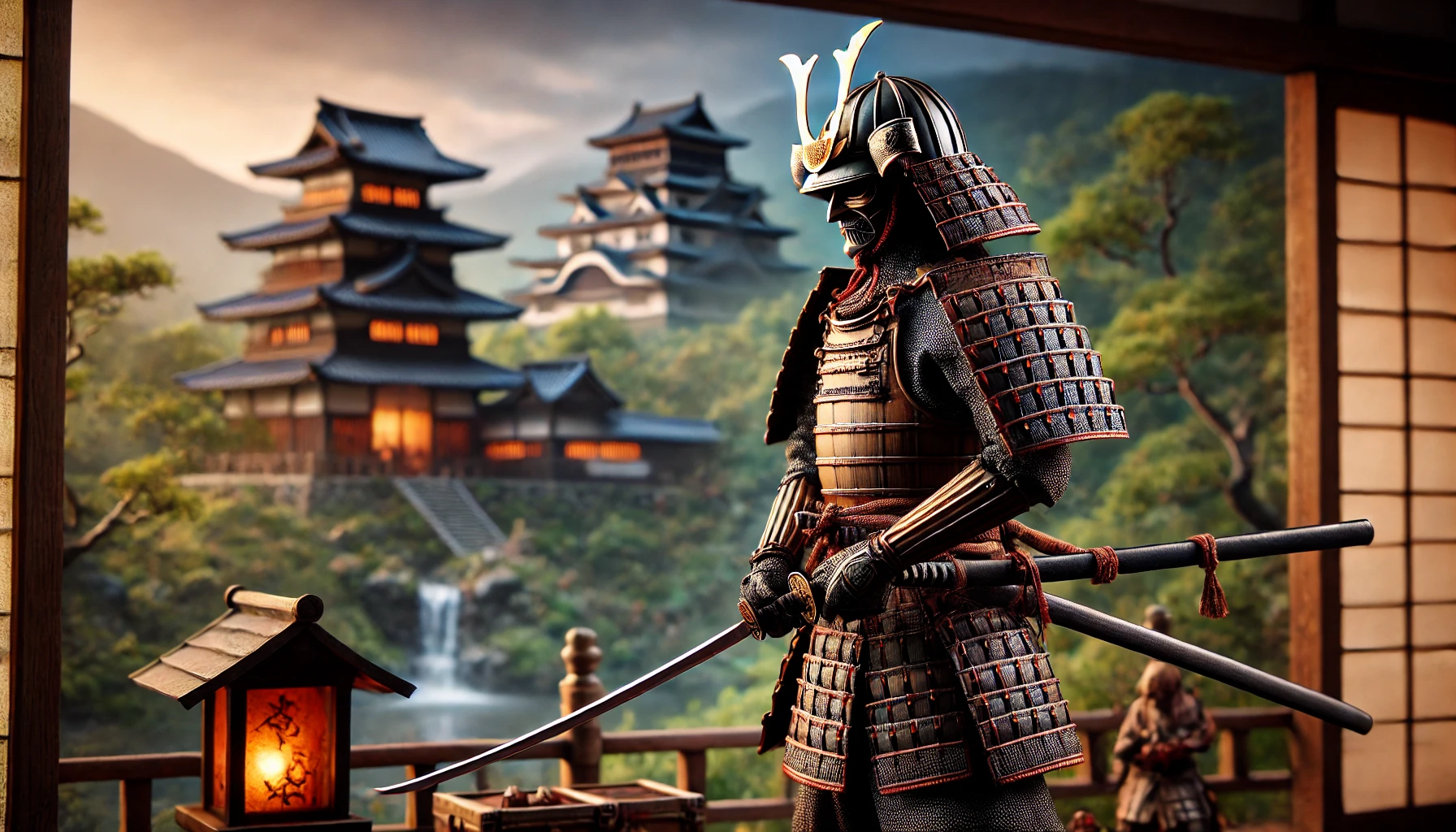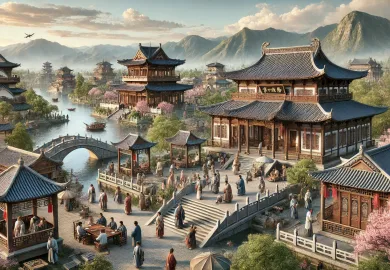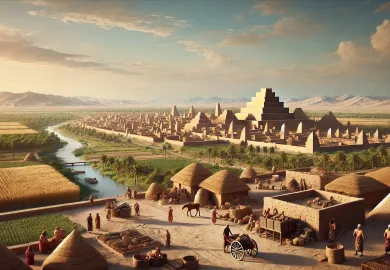
The Samurai warriors, an iconic symbol of Japanese history, are renowned for their exceptional bravery, loyalty, and adherence to a strict code of honor known as bushido. These skilled warriors played a pivotal role in shaping Japan’s political and cultural landscape for centuries. Their influence extends beyond the battlefield, leaving a lasting legacy that continues to captivate people across the world. This article delves deep into the history, traditions, and cultural significance of these noble warriors.
The Origins of Samurai Warriors
The Samurai warriors emerged in the 8th century as Japan began to consolidate its power. Initially, these warriors were hired by wealthy landowners to protect their lands from invasions and disputes. Over time, the Samurai grew in influence, becoming a crucial part of the country’s political system.
During the Heian period (794-1185), Japan was ruled by an emperor, but local feudal lords, known as daimyos, held significant power. To safeguard their territories, these lords recruited warriors skilled in archery, swordsmanship, and mounted combat. This marked the beginning of the Samurai class, who would go on to dominate the country’s military and political scene for over a millennium.
As the Samurai gained prominence, they developed a unique set of values, primarily influenced by Zen Buddhism and Confucianism. These values emphasized loyalty, discipline, and respect for one’s master, which eventually became known as bushido, the code of the Samurai. This code dictated how Samurai lived, fought, and, in some cases, how they died.
The Bushido Code: The Way of the Samurai
The Bushido code, often translated as “the way of the warrior,” is the ethical framework that guided Samurai warriors throughout their lives. It was not just a set of rules for warfare but a comprehensive way of life that emphasized virtues such as loyalty, courage, benevolence, respect, honesty, and self-control. These principles were ingrained into the Samurai from a young age and shaped their worldview.
Loyalty was perhaps the most important value in the Bushido code. Samurai were expected to be unswervingly loyal to their lord or master, often to the point of sacrificing their own lives in their service. This loyalty created a deep bond between the Samurai and their lords, with the Samurai seeing their role as an extension of their lord’s power and honor.
Courage was equally vital. The Samurai were expected to show unwavering bravery in the face of adversity. This courage was not only physical but also moral. The Samurai were encouraged to uphold the highest standards of integrity, even when faced with personal loss or death. The practice of seppuku, or ritual suicide, was a stark demonstration of the Samurai’s commitment to these values. In certain circumstances, Samurai would perform seppuku to avoid dishonor or to atone for failure, highlighting the gravity of their dedication to the code.
The Role of Samurai in Feudal Japan
The Samurai warriors were the backbone of feudal Japan’s military forces. They served the shoguns, who were the military dictators, and the daimyos, the powerful feudal lords. While they were primarily warriors, their influence extended far beyond the battlefield. They were also scholars, poets, and artists, playing a critical role in shaping Japanese culture.
In the early centuries, Samurai were adept in the use of bows and arrows, but over time, their skills with the katana, the iconic curved sword, became their most defining feature. The katana was not just a weapon; it was a symbol of the Samurai’s soul. Carrying the katana and the shorter wakizashi, Samurai were always ready for battle and bound by the expectation to live and die by the sword.
Beyond warfare, Samurai also played a crucial role in governance. Many Samurai took on administrative roles, overseeing land management and the day-to-day affairs of their lords’ estates. Their close ties with the ruling elite allowed them to wield significant political power, often shaping policies and decisions at the highest levels.
The Decline of the Samurai Class
Despite their centuries-long dominance, the Samurai warriors faced significant challenges as Japan entered the modern era. By the mid-19th century, Japan was transitioning from a feudal society to a more centralized, modern state. This period, known as the Meiji Restoration, brought about sweeping political, economic, and social changes, and the Samurai class was not immune to these shifts.
One of the most significant blows to the Samurai came with the abolition of the feudal system. In 1868, the emperor was restored to power, and the Samurai class was gradually stripped of their privileges. This marked the end of their role as the ruling military elite. The introduction of modern weaponry and military tactics further diminished the need for Samurai warriors in battle.
While many Samurai adapted to the changing times by becoming bureaucrats or joining the new Japanese army, others struggled to find their place in a rapidly modernizing society. The Satsuma Rebellion of 1877, led by disaffected Samurai, was a final attempt to resist these changes, but it was ultimately crushed by the new government forces, signaling the definitive end of the Samurai era.
The Lasting Legacy of the Samurai Warriors
Although the Samurai class no longer exists, their influence on Japanese culture is undeniable. The ideals of bushido, the significance of the katana, and the heroic tales of famous Samurai, such as Miyamoto Musashi and Oda Nobunaga, have become an integral part of Japan’s national identity. These elements continue to inspire modern Japanese martial arts, literature, and cinema.
Samurai traditions have also had a profound impact on modern-day Japan. The emphasis on discipline, loyalty, and honor that defined the Samurai still resonates in various aspects of Japanese society, from corporate culture to the nation’s approach to education and governance. The Samurai spirit, or yamato-damashii, is often invoked in times of national pride or crisis, reflecting the enduring relevance of the Samurai’s values.
Moreover, the Samurai’s legacy has transcended Japan’s borders, influencing global culture. From Hollywood films to video games, the Samurai warrior has become an international symbol of honor, skill, and bravery. Tourists flock to Japan to visit historical sites like Himeji Castle and the graves of famous Samurai, eager to learn more about these fascinating warriors and their way of life.
The Cultural Symbolism of Samurai Armor and Weapons
One of the most visually striking aspects of the Samurai warriors was their elaborate armor and weaponry. The Samurai armor, known as ō-yoroi, was both functional and symbolic. Made from layers of leather, iron, and lacquer, the armor was designed to provide maximum protection while allowing the Samurai to remain agile on the battlefield.
Samurai helmets, or kabuto, often featured intricate designs and crests, representing the warrior’s family or clan. These helmets were also believed to have spiritual significance, offering protection not just from physical harm but also from evil spirits. The Samurai’s armor and weapons were often passed down through generations, becoming treasured family heirlooms.
The Samurai’s sword, the katana, was much more than a tool for battle; it was a symbol of the warrior’s soul. Samurai treated their swords with the utmost reverence, often believing that their sword held spiritual power. The process of forging a katana was considered a sacred art, with master swordsmiths devoting years to perfecting their craft.
The history of Samurai warriors is a rich tapestry of honor, loyalty, and bravery that has left an indelible mark on both Japanese and global culture. While the era of the Samurai may have ended, their traditions, values, and symbols continue to influence and inspire. Whether through their role in feudal Japan, their adherence to the Bushido code, or their lasting cultural significance, the Samurai remain a powerful reminder of the enduring strength of tradition.
Warm and Welcoming People
In Japan, one of the most cherished aspects that visitors frequently remark on is the warmth and hospitality of its people. The locals of Japan have a deeply rooted tradition of welcoming outsiders with open arms, a practice embedded in the culture for generations. This warm reception goes beyond just friendly smiles; it’s about genuine interest and respect, making tourists feel at home from the moment they arrive.
Whether in bustling cities or quaint rural villages, the people of Japan are known for going out of their way to make visitors feel comfortable. It’s common for locals to offer directions, share insights about hidden spots, or even invite travelers for a meal. This openness to strangers is not only a mark of respect but also a way to share their culture and heritage, allowing tourists to experience the authentic soul of the country.
This warmth makes a visit to Japan more than just a journey to a new place; it becomes a memorable experience of human connection. By the end of their stay, many travelers feel they’re leaving not just a beautiful landscape but also newfound friends. It’s this unique combination of natural beauty and heartfelt hospitality that makes Japan an unforgettable destination, resonating in the memories of everyone who has had the pleasure of experiencing it.









